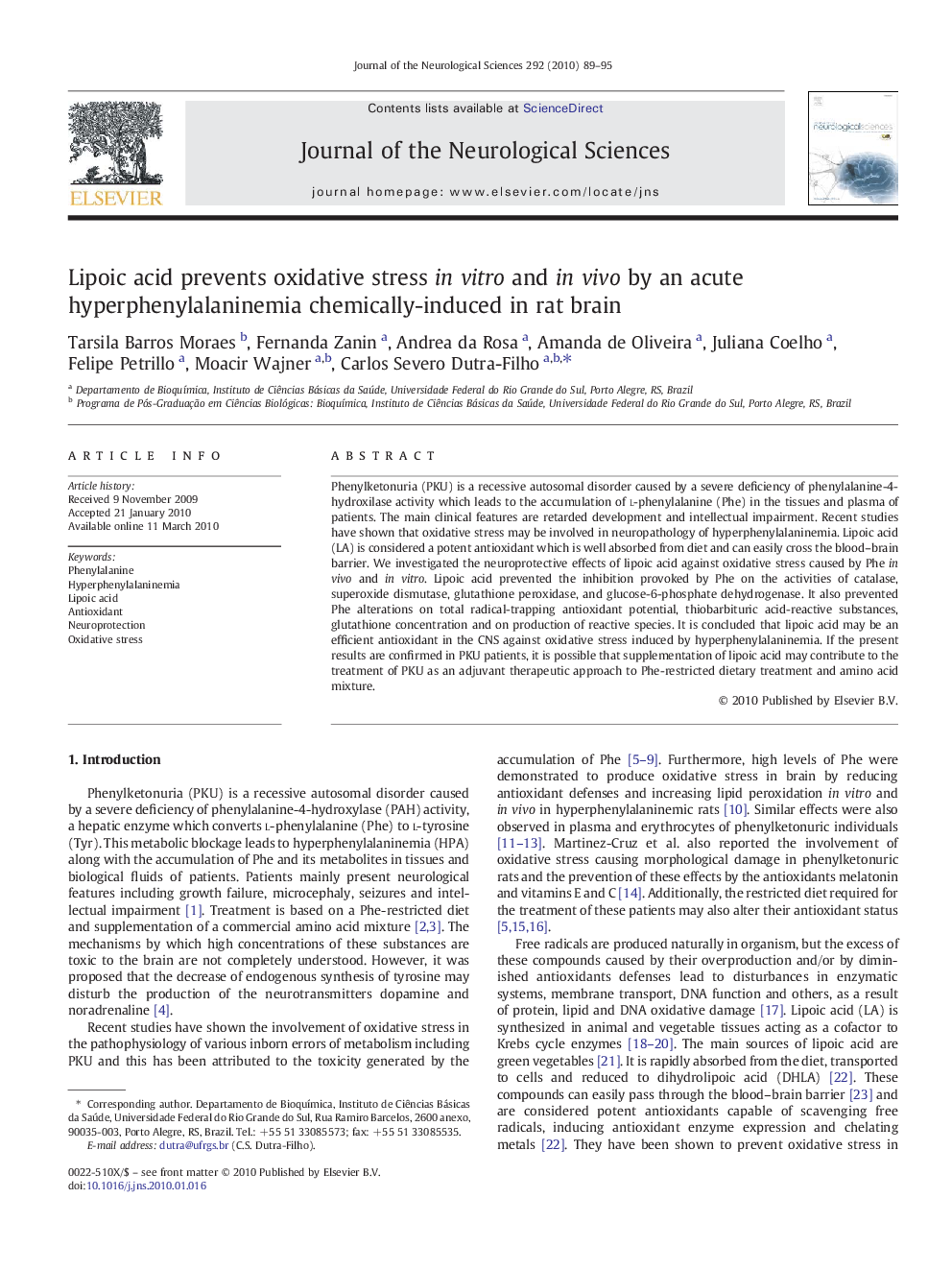| Article ID | Journal | Published Year | Pages | File Type |
|---|---|---|---|---|
| 1914609 | Journal of the Neurological Sciences | 2010 | 7 Pages |
Phenylketonuria (PKU) is a recessive autosomal disorder caused by a severe deficiency of phenylalanine-4-hydroxilase activity which leads to the accumulation of l-phenylalanine (Phe) in the tissues and plasma of patients. The main clinical features are retarded development and intellectual impairment. Recent studies have shown that oxidative stress may be involved in neuropathology of hyperphenylalaninemia. Lipoic acid (LA) is considered a potent antioxidant which is well absorbed from diet and can easily cross the blood–brain barrier. We investigated the neuroprotective effects of lipoic acid against oxidative stress caused by Phe in vivo and in vitro. Lipoic acid prevented the inhibition provoked by Phe on the activities of catalase, superoxide dismutase, glutathione peroxidase, and glucose-6-phosphate dehydrogenase. It also prevented Phe alterations on total radical-trapping antioxidant potential, thiobarbituric acid-reactive substances, glutathione concentration and on production of reactive species. It is concluded that lipoic acid may be an efficient antioxidant in the CNS against oxidative stress induced by hyperphenylalaninemia. If the present results are confirmed in PKU patients, it is possible that supplementation of lipoic acid may contribute to the treatment of PKU as an adjuvant therapeutic approach to Phe-restricted dietary treatment and amino acid mixture.
